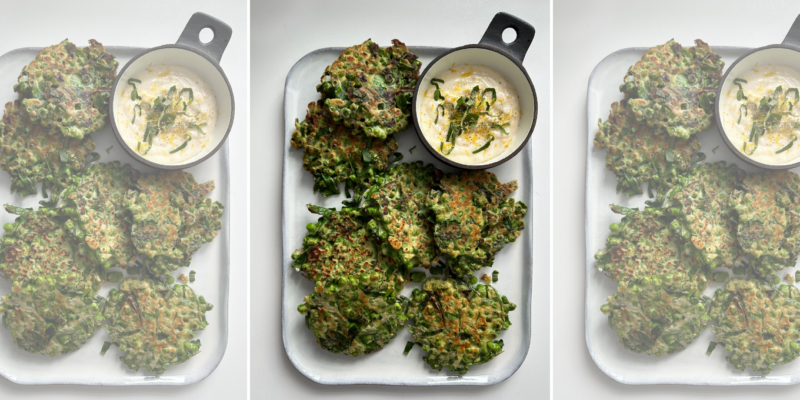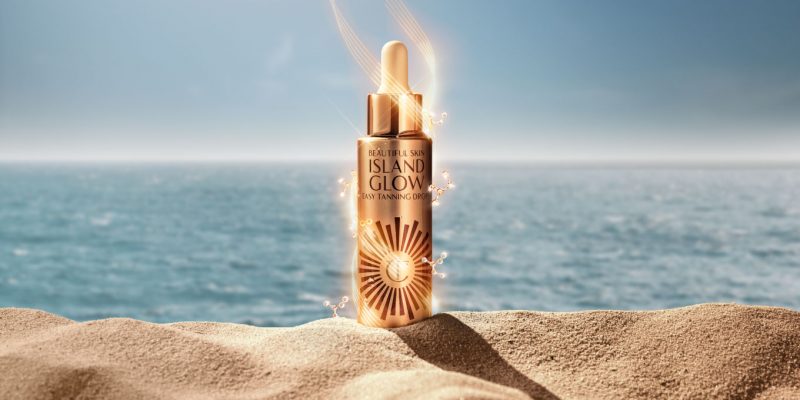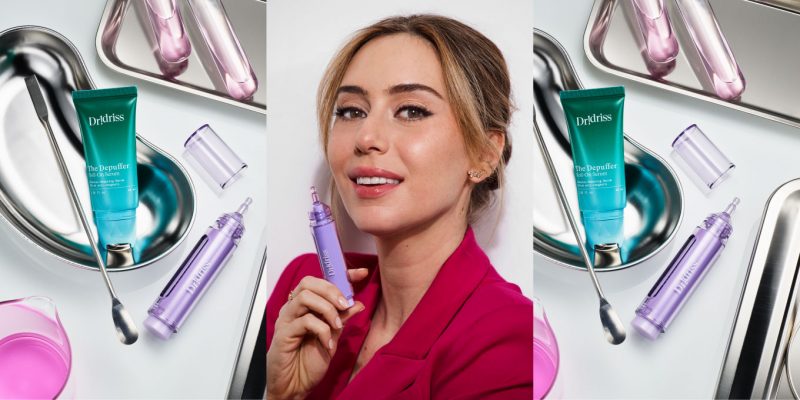Skincare
Mushroom Beauty Is Here to Stay
Mushrooms seem to be everywhere these days, with claims that they do everything from enhancing skin to soothing stress. So why all the fuss over fungi?
by : Caitlin Kenny- Apr 30th, 2024

It’s been 60 years since mushrooms became a counterculture symbol of beatniks and hippies, and millennia before that, Aztec, Mayan, Egyptian and other ancient societies used them for sacred rituals. Now, fungi have suddenly, well, mushroomed into a cultural phenomenon. From your skincare cabinet to your latest Netflix binge to the $25 Erewhon smoothies sipped by the likes of Hailey Bieber and Bella Hadid, mushrooms are cropping up everywhere.
In the beauty and wellness industries, the promises are especially mighty: Fungi are said to plump skin, shrink pores, nix stress and even cure depression. “A lot of companies want to use natural products and look to nature for answers—so it’s like, ‘Where can we find hyaluronic acid?’” says Dr. Sandy Skotnicki, a Toronto-based dermatologist and assistant professor at the University of Toronto who also helps beauty brands develop new formulas.
Increasingly, that search has led to mushrooms—in particular, the Tremella mushroom, which is a moisture magnet that rivals hyaluronic acid. Also known as “snow mushroom,” it has been shown in studies to deliver the same hydrating effect as hyaluronic acid but with a lower concentration and at a lower cost. It’s no wonder natural-beauty brands are harnessing its extract, a top-billed ingredient in Toronto- based Three Ship’s Dew Drops Serum ($49, threeshipsbeauty.ca) and Seattle-born Herbivore’s Cloud Jelly Plumping Hydration Serum ($66, thedetoxmarket.ca).
Even brands that aren’t strictly positioned as “green” are joining in—Make Up For Ever credits the skin-smoothing abilities of its new HD Skin under-eye concealer to a complex that includes snow mushrooms. Similarly, Dermalogica added shiitake mushroom to its Powerbright Dark Spot Serum ($139, dermalogica.ca) for its brightening benefits and Peace Out uses agarikon to help minimize dilated pores in its new Pore Perfecting Stick ($33, sephora.ca).
While more and more products with mushrooms on their labels are now hitting shelves, there’s one skincare company that was way ahead of the curve: Origins. Back in 2005, the brand tapped Dr. Andrew Weil, a Phoenix-based medical doctor, proponent of integrative medicine and major name in the mushroom world. (You might’ve spotted him in Netflix’s Fantastic Fungi doc.)
“No one was using mushrooms in skincare products back then,” recalls Weil, who first learned about their healing properties in the ’70s through Traditional Chinese Medicine (TCM). “Because they seemed to modulate immune activity, I thought they might reduce skin inflammation and redness.”
This thought led to the birth of the Dr. Andrew Weil for Origins Mega-Mushroom line, a collaboration that continues to this day. The collection now boasts 10 products, including the brand’s number one global bestseller, Mega-Mushroom Relief & Resilience Soothing Treatment Lotion. Reishi, chaga and cordyceps are the stars of the range and purported to soothe irritation and bolster the skin barrier. “Mushrooms improve the long-term health of skin, increasing its resistance to irritation and damage,” says Weil. “They are proven to be anti-inflammatory and help calm skin issues even before they arise.”
SHOP THE STORY:
Dr. Andrew Weil for Origins Mega-Mushroom Relief & Resilience Soothing Treatment Lotion
Price: $56
Other benefits include making cleansers less irritating and drying (as per a 2022 study using reishi, lion’s mane and maitake extracts) and fending off free radicals. “Just like most plants, mushrooms are packed full of antioxidants,” says Skotnicki. “Pollution and UV rays are damaging to your skin, but antioxidants act like sponges that soak up free radicals before they can damage the tissues.”
Mushrooms are also considered adaptogens, which are compounds that help the body respond to stress. You can find them in topical products, such as Youth to the People’s Adaptogen Soothe + Hydrate Activated Mist ($57, sephora.ca), as well as in ingestibles (not the psychedelic kind), like Moon Juice’s SuperYou Daily Stress Management supplements. Adaptogens have long been used for stress management in TCM and Ayurvedic medicine, but many experts, including Skotnicki, hope to see more human clinical trials that better support the claims.
Adaptogenic benefits aren’t the only reason people are scarfing down fungi. “Mushrooms have a wide range of benefits, including increasing resistance to infection and cancer, reducing inflammation, lowering serum cholesterol and, [in the case of] lion’s mane, protecting nerve health,” says Weil, who himself forages for mushrooms, cooks with them and takes their extracts. “They are my preferred wellness and well-being companion.”
Increasingly, mushrooms can be found in supplements and wellness drinks, like the self-dubbed “coffee alternative” MUD\WTR, which promises to boost energy without the jitters thanks to ground-up mushrooms, and Blume’s Reishi Hot Cacao Blend, a hot-chocolate powder drink said to relieve stress. Other Instagram-era brands are homing in on psilocybin, a psychedelic compound found in mushrooms, and translating it from hippie culture to mainstream hype. Although Health Canada says it has no plans to decriminalize or legalize products with psilocybin, trippers still seek them out for both recreational and therapeutic purposes.
With nary a tie-dyed peace sign in sight, sleekly designed e-commerce company Schedule35 sells magic-mushroom capsules. They come in microdoses that are purported to improve focus and mood without psychoactive effects as well as superdoses for a trip that may include a body high, hallucinations and new patterns of thought. Mushroom dispensaries are also quickly becoming the new pot shops. FunGuyz, a chain with locations in Toronto and Montreal, is subject to frequent police raids but continues to bounce back. Like with many wellness trends, Gwyneth Paltrow played a part when her Netflix series, The Goop Lab, took her team to Jamaica for a magic-mushroom retreat that saw the Goopers crying, giggling and, with the help of the on-site therapists, healing from past trauma.
The potential of psychedelics in therapy is proving unignorable: Last June, the Canadian government announced a nearly-$3-million investment that will allow researchers to study how psilocybin can be used in treatment for mental illness and addiction.
Ultimately, the more we learn about the power of mushrooms the better, says Skotnicki. “There are a lot of really cool things about fungus, and I think we’re just at the tip of the iceberg.” In the meantime, she’s sure that we’ll see “mushroom-washing” as a sales tactic. “Everyone is going to try to sprinkle it into products, but that’s par for the course.”
Does the marketing machine behind mushrooms sometimes overstate their benefits? “Probably,” concedes Weil, “but there is strong evidence that mushrooms are truly nature’s gem, so I feel many claims are doing the work of educating the consumer.” The lesson that Skotnicki and countless other doctors, researchers, wellness seekers and more are taking away: “We’re really learning that nature has all the answers,” she says. “It’s been here for billions of years.”
Newsletter
Join our mailing list for the latest and biggest in fashion trends, beauty, culture and celebrity.
Read Next

Fashion
Tennis Champions Roger Federer and Rafael Nadal Climb a Mountain With Louis Vuitton
An Odyssey of rivals turned friends.
by : Allie Turner- May 18th, 2024

Culture
Two ‘Bridgerton’ Cast Members Are Dating IRL
The Ton is a-twitter with rumours.
by : Rebecca Mitchell- May 17th, 2024

Culture
These Pea, Mint and Spinach Fritters Are the Ultimate Spring Snack
Served with a little creamy yogourt sauce on the side, these fritters are an ideal meal, appetizer or shareable snack.
by : Margaux Verdier- May 7th, 2024








